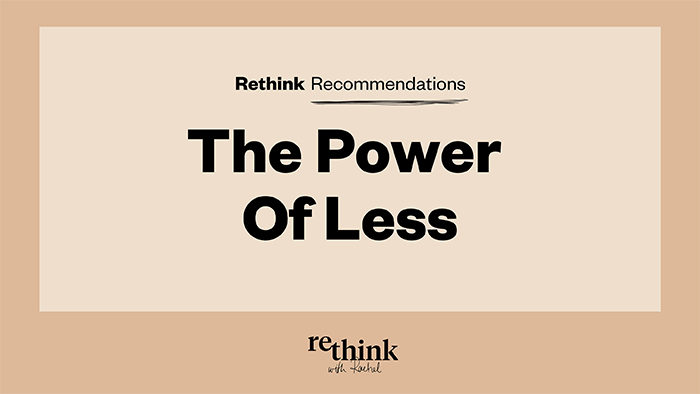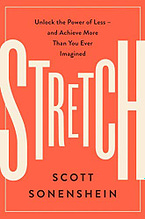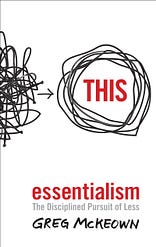Guest Post by Rachel Botsman | The Power of Less

This is a guest post by WWSG thought leader, Rachel Botsman.
Lately, I’ve been thinking about how much the concepts of ‘adding’ and ‘more’ shape our personal and professional lives. For example:
- When you think about your goals, are they based on more of something?
- Or in your career, do you think of development as having a larger budget or team to manage?
- Do you typically start your day or week with a to-do list (versus a to-don’t list)?
- At work, do you plan how you be less busy to think more?
- At school did you learn to add up before you learned to take away?
We talk about the power of ‘less’ in terms of our consumption, yet ‘less’ plays such an important role in creative thinking and satisfaction.
My relationship with ‘less’
I first started to understand the power of less when I was studying fine art at Oxford University. I was like most young artists, far too focused on the ‘positive object’ – the physical thing in front of me. When my tutors gave me feedback, my instinct to improve a piece was to add something to it.
Over time, I learned the power of negative space – the blank space between and around objects. To unlock that space, I typically had to take something away – to give the piece more meaning it had to become ‘less’.
Creatives of all kinds – writers, designers, architects, and even chefs – observe that over time their work gets better through editing. By what they take away.
How to unlock the power of ‘less’
Entrepreneurs often admit that they were the most innovative during the early stages of having to be scrappy. When they were engaged with the limits of their resources, they could see the full potential of their ideas.
Having less releases us from the need to do things conventionally. But the principle of less takes confidence, creativity, and courage.
Our focus on ‘adding’ runs so deep in our lives, that we must retrain ourselves to see ‘less’ as a design principle, not only in the arts but in the world and workplaces around us.
Here are a few things to help you get started with rethinking less:
- Stretch: Unlock the Power of Less and Achieve More Than You Ever Imagined by Scott Soneshein
The concept of ‘stretching’ is based on the idea that you can be more creative and more productive with less. The book draws on a range of research to explain why some people can do a lot with a little, while others are constantly ‘chasing’ – the cultural belief that the more we have the more we can do.
Sonenshein says: “How many times have you said to yourself, “If I have more time, or if I have more money, or If just had more experience or more talent, this is what I can do.” And what that really does for us, it just makes us wait.”
- Essentialism: The Disciplined Pursuit of Less by Greg McKeown.
Discipline is key in the title here! Less happens by design, not by default. It requires a lot of deliberate thought and decision-making to eliminate the nonessentials. A big takeaway for me was how making choices reactively, always saying ‘yes’, is part of the culture of more. Clear ‘no’s’ are part of a less of what McKeown calls the ‘Essentialist’ mindset.
McKeown writes: “Essentialism is not about how to get more things done; it’s about how to get the right things done. It doesn’t mean just doing less for the sake of less either. It is about making the wisest possible investment of your time and energy in order to operate at our highest point of contribution by doing only what is essential.”
- And something a bit different to watch: The Paradox of Efficiency
This is a fascinating TED talk by historian Edward Tenner that explains why trying to be more efficient will make us less efficient in the long run.
Less is in many ways a constraint – it forces us to view problems and solutions in a new light. That’s why the power of less unlocks – for everyone from creatives to leaders – better and different work.
So, a question I’ve been asking myself: why do workplaces and systems commonly shun away from the concept of less? I think has something to do with trust.
Less requires more trust. You must be more confident in the unknown.
To start embracing the power of less, ask yourself a question:
How could having less of something jumpstart you to becoming more creative?
I’d love to hear your ideas in the comments.
Warmly,



